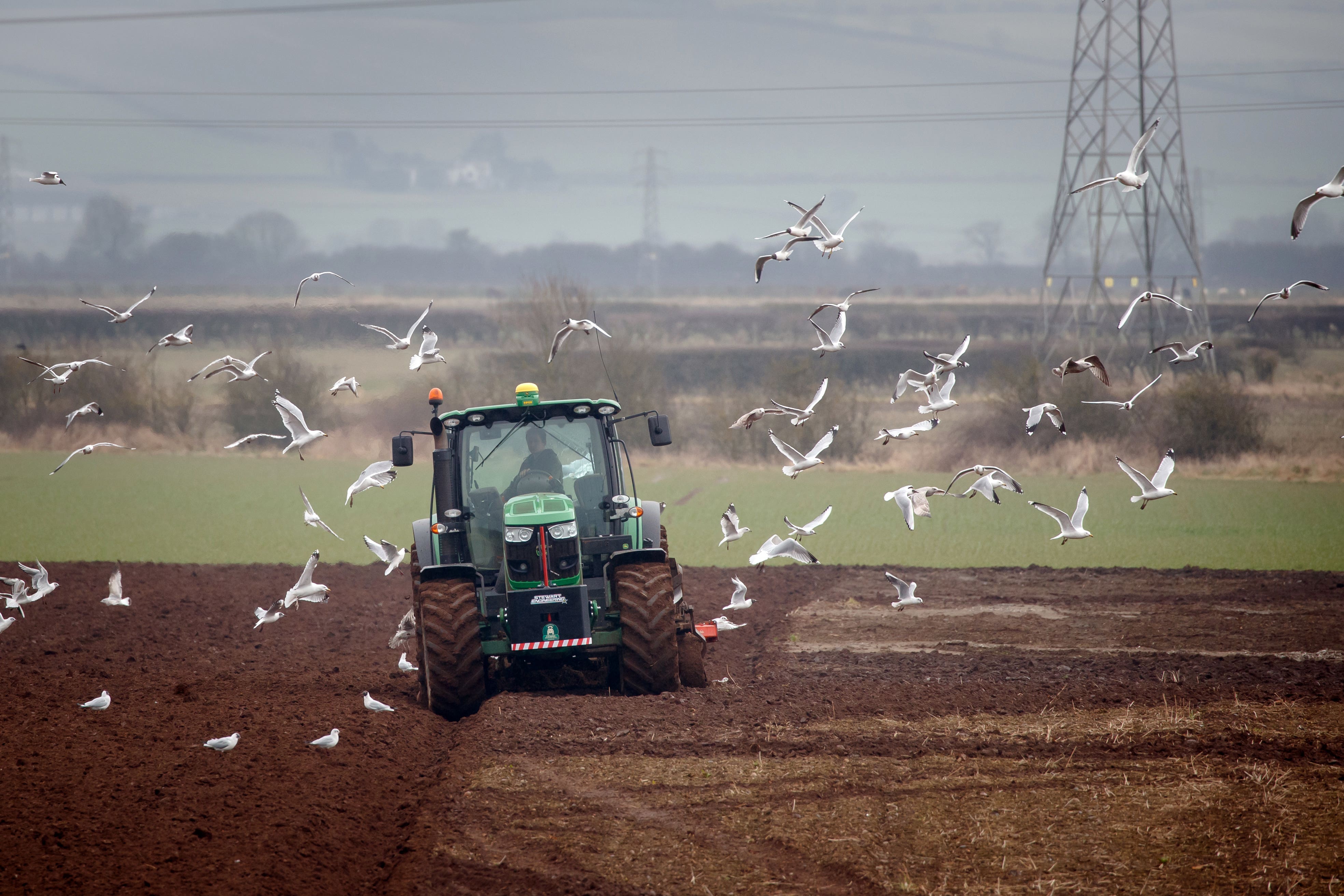Impact of changes to farming inheritance tax: key questions answered
Under changes announced in the Budget, farms worth more than £1 million will be liable for inheritance tax.

Your support helps us to tell the story
From reproductive rights to climate change to Big Tech, The Independent is on the ground when the story is developing. Whether it's investigating the financials of Elon Musk's pro-Trump PAC or producing our latest documentary, 'The A Word', which shines a light on the American women fighting for reproductive rights, we know how important it is to parse out the facts from the messaging.
At such a critical moment in US history, we need reporters on the ground. Your donation allows us to keep sending journalists to speak to both sides of the story.
The Independent is trusted by Americans across the entire political spectrum. And unlike many other quality news outlets, we choose not to lock Americans out of our reporting and analysis with paywalls. We believe quality journalism should be available to everyone, paid for by those who can afford it.
Your support makes all the difference.Changes to inheritance tax for farmers announced in last week’s Budget have prompted a furious backlash, with calls from farming and rural organisations to reverse the move.
Here are some of the key questions answered.
– What are the changes?
Previously, farming businesses qualified for 100% relief on inheritance tax on agricultural property and business property, but now the tax is being imposed on farms worth more than £1 million, with an effective tax rate of 20% on assets above the threshold.
The Treasury says that the actual threshold before paying inheritance tax could be as much as £3 million, depending on circumstances.
– How many farmers will be affected by the changes?
That is causing some debate at the moment.
According to the Treasury, some 27% of estates claiming agricultural property relief (APR) were above the £1 million threshold in 2021/2022, suggesting that nearly three-quarters of farms would not fall within the scope of the charges.
However, the National Farmers’ Union says farm businesses have also qualified separately for business property relief, which can cover things such as harvested grain and livestock, machinery and diversified businesses such as camping on a farmer’s field.
Now the two are combined, with a single £1 million allowance before inheritance tax is levied, which could mean more farms are in scope.
All incentive for investment disappeared because it will now increase your balance sheet and you'll be liable to pay inheritance tax on it
The NFU points to figures from the Environment Department (Defra) showing that 66% of farm businesses in England have a net value of more than £1 million. NFU president Tom Bradshaw described it as a “massive discrepancy” between the numbers.
The NFU also says the Treasury figures include all estates which qualify for APR, which could include non-farming properties that have some grazed fields, so do not fully reflect the proportion of working farms that could be affected.
Mr Bradshaw estimates that 75% of food production in the UK will be within the scope of the changes.
– Why do farmers say the changes are a problem?
According to the NFU, while farms may have a high nominal asset value – the value of their land and business assets – the returns from farming are often very low, so farming families may not have the reserves to pay for inheritance tax liabilities without selling off assets.
Mr Bradshaw also warned of the impact on investment, saying: “We need to make sure we’re not living off investments of the past, but we’re investing in our farm businesses today to deliver sustainable food production.
“Unfortunately, all incentive for investment disappeared because it will now increase your balance sheet and you’ll be liable to pay inheritance tax on it.”
There are also concerns that it could affect tenant farmers if landowners no longer benefit from having a tax exemption for farmed land.
And the NFU is warning of the mental health impact on older people who are still living on the farm and have not legally passed on the business to the next generation who are farming it, and fear they will not survive for the seven years needed to exempt a gift from inheritance tax.
They’re both right in saying that some people will be affected and the disagreement is over what extent
– Is one side right and is one side wrong?
David Sturrock, senior research economist at the Institute for Fiscal Studies, thinks the answer to that is “no”.
“The Government is setting out policy, I assume on the farmers’ side they are accurately reporting that there are some farms that are above the £1m threshold or above the £2m threshold.”
He added: “They’re both right in saying that some people will be affected and the disagreement is […] over what extent – what proportion of people are going to be affected and to what extent.
“On that, I can imagine that the Government are making a forecast, of course it’s possible that reality could diverge from that forecast.
“It’s also quite possible that the proportion of people actually affected will be less than what’s being claimed by farmers.”